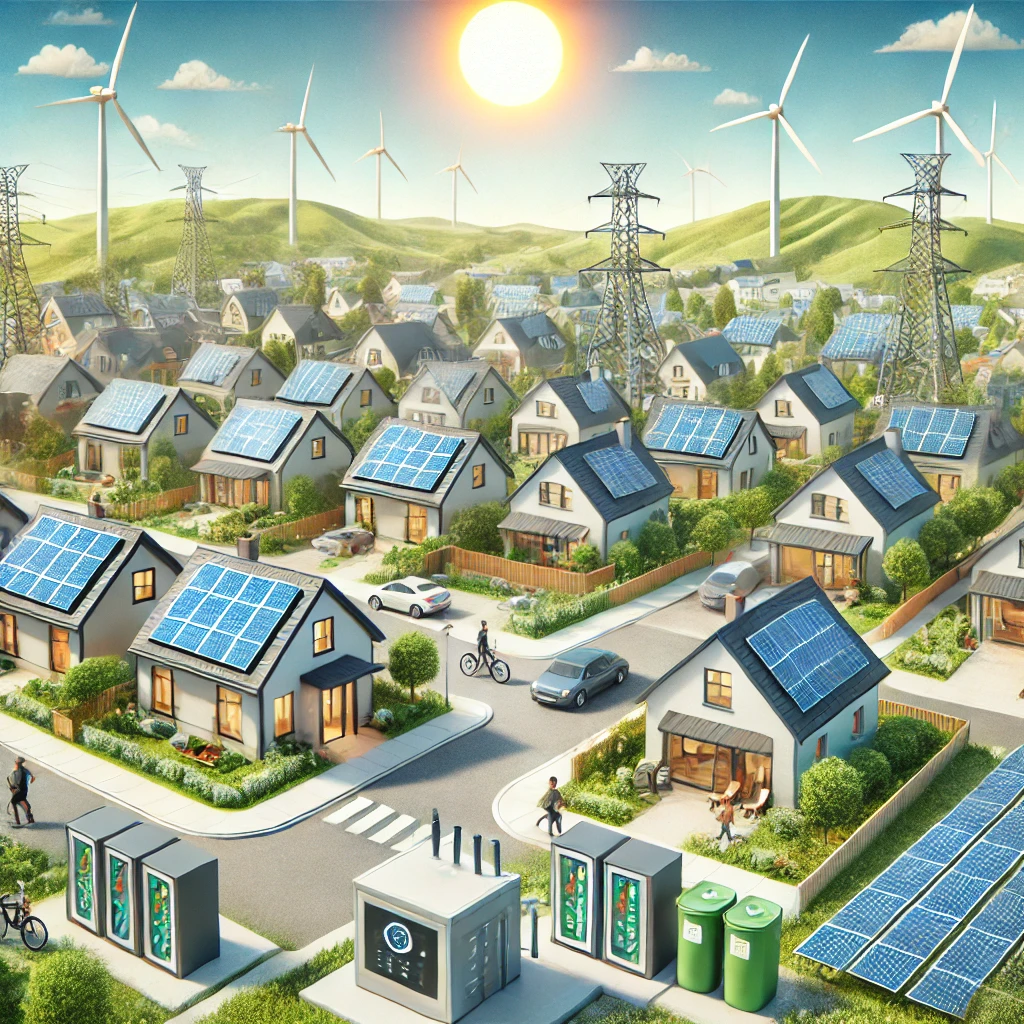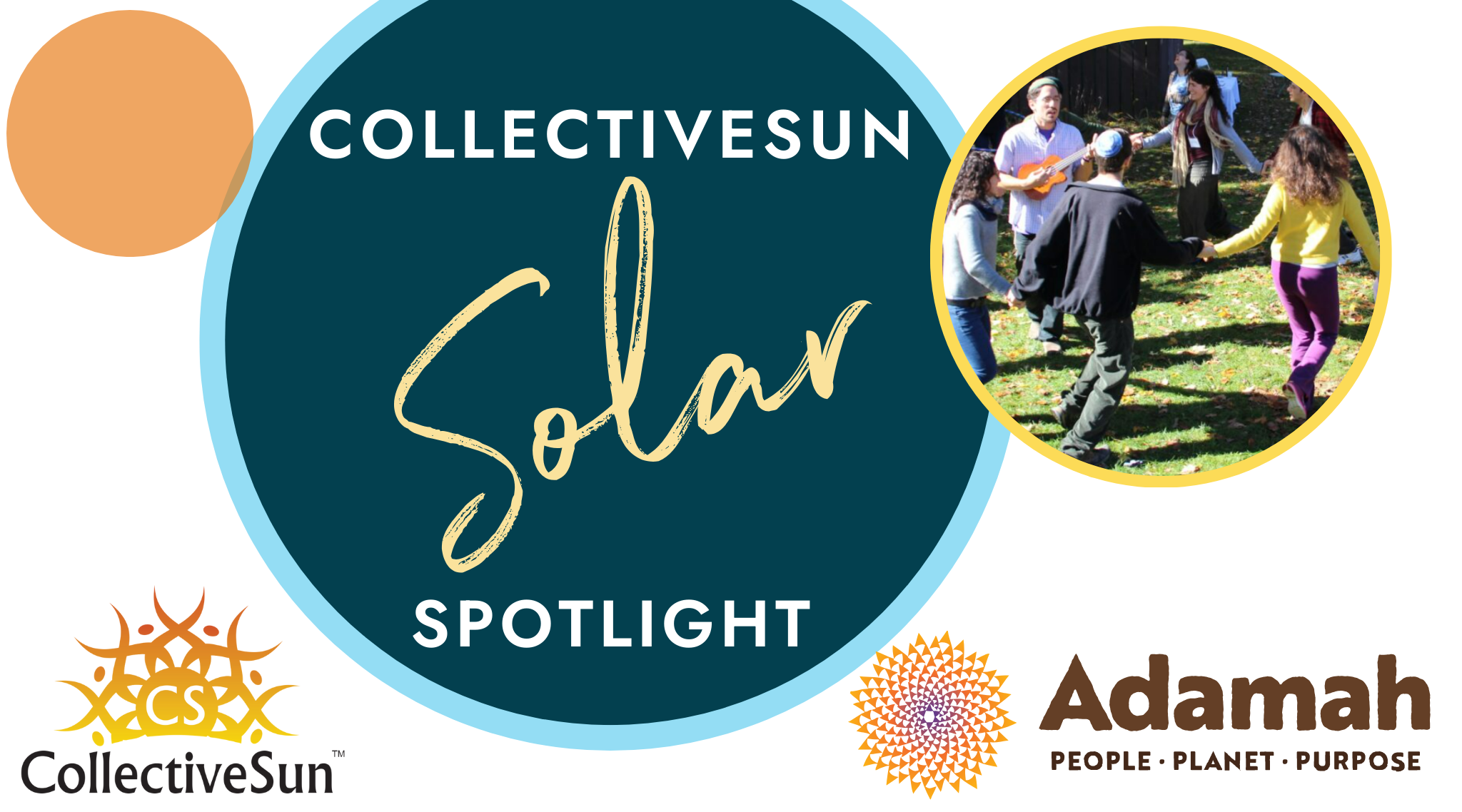|
|
|
|
 |
Why We Need More Distributed Energy Generation Now
As severe weather events increase in frequency and intensity across the nation, this kind of scenario is becoming more common. The good news is that solar and energy storage can help. They can mitigate the effects of climate change that’s contributing to more severe weather, while also helping avoid the resulting power outages.
Achieving energy resilience
It’s no secret that deploying more renewable energy sources like solar is key to limiting climate change. To meet our nation’s climate goals, we need to transition our energy generation away from fossil fuels. That transition will take all kinds of renewable energy deployments, including large utility-scale solar and wind facilities.
But how do we deal with increasingly frequent and lengthy power outages like last week’s in Texas? Our nation’s centralized energy system, designed for a time when most power was generated remotely at large power plants, is not up to the task. It relies on long transmission lines, which are not resilient, and which are being challenged by increasingly severe weather, not to mention the increased risks of wildfires caused by downed power lines.
That’s why we also need small, local energy deployments. These distributed energy resources include batteries as well as energy generation facilities like photovoltaic solar installations. Local solar + storage, especially when deployed as part of a microgrid, provides significant resilience benefits.
During a power outage, a microgrid can “island” from the larger grid and continue operating. When the sun isn’t shining, energy stored in the battery can be used until the battery can be charged again. When sized properly, a microgrid can keep critical electric loads online for long periods of time.
Beyond resilience: Benefits of distributed generation
As significant as the resilience benefits are, distributed energy generation also provides many additional advantages such cost savings and local economic stimulat…
|
| Continuing reading here |
|
|
 |
|
The Solar Spotlight:
SOLAR SPOTLIGHT: ADAMAH
We are thrilled to feature Adamah, the largest Jewish environmental organization in North America, in this CollectiveSun Solar Spotlight.
We begin by exploring the heart of their mission with Adamah’s Deputy Climate Action Director Liore Milgrom-Gartner and the impactful work this wonderful organization is doing in the realm of clean energy.
|
 |
The Organizational Story and Mission
Adamah is deeply rooted in the connection between people and the planet, as reflected in its name (adam & adamah), which means “people” “ground” and “earth” in Hebrew.
In spring 2022, Adamah, alongside twenty major umbrella Jewish organizations, launched the Jewish Climate Leadership Coalition. This coalition signifies a broad consensus within the Jewish community that they are ready and capable to take collective climate action. With a goal of achieving net-zero greenhouse gas emissions, Adamah underscores the critical role of clean energy in reaching this objective.
Focus on Clean Energy
Adamah’s commitment to clean energy stems from its mission to create a sustainable future. Recognizing the urgent need to address climate change, Adamah has positioned clean energy as a cornerstone of their strategy. By advocating for renewable energy sources, they aim to reduce greenhouse gas emissions and foster a healthier planet for future generations.
|
 |
Programs and Services
Through their signature program the Jewish Climate Leadership Coalition, Adamah supports other organizations in developing and implementing Climate Action Plans. These plans detail strategic priorities, actions taken to date, and future goals for reducing emissions and mobilizing networks around climate action. Adamah provides comprehensive resources to Coalition members, including:
- Climate action resource guides
- Seminars and workshops
- Office hours with staff
- Monthly newsletters
- Networking opportunities through communities of practice
- Financial support via interest-free loans and matching grants from Adamah’s Climate Action Fund
- A Climate Action Plan Submission Form to streamline the planning process
Unique Benefits of Partnering with Adamah
Partners new to Adamah can expect robust support and numerous benefits. The organization offers valuable resources and expert guidance to help Jewish community organizations develop effective Climate Action Plans. By joining the Coalition, memb…
|
| Click Here to Continue Reading |
|
|
 |
|
|
|
Was this newsletter forwarded to you and you’d like to join our mailing list? Click here !
|
|
|
|
|
|
|
Know A Nonprofit?
If your favorite nonprofit organization is exploring going solar and their mission is to provide programs & services that support communities of concern benefitting:
|
|
|
|
CollectiveSun is here to help you with your solar financing.
| Interest Rates Start at 4.99% |
| Rates Are Based On Community Impact, Not Just Credit Score |
| One Simple Payment | Term Length Up To 10 Years |
| Payment Holiday Durning Construction of System | No Prepayment Penality |
Our goal is for you to end up with a solar system that reduces your carbon footprint and is a $0 down investment with a positive cash flow from day one, so it has an immediate impact on your bottom line. That’s what we want most for the organizations that are the backbone of our communities – financial and environmental sustainability that allows you to concentrate on your mission and reach your sustainability goals.
|
|
|
|
If you’d like to learn more, schedule a meeting with Nicole here.
|
|
|
|
Navigating the world of solar financing can be daunting, but it doesn’t have to be. Our team of seasoned experts has been focused on delivering solar financing solutions for nonprofit and tax-exempt organizations across the country for over a decade. In just the last few years, we’ve proudly facilitated solar projects for over 200 nonprofits spanning 25 states.
|
|
|
 |
|
At CollectiveSun, we understand that every nonprofit is unique, and that’s why we offer a diverse range of financing options. Whether you’re considering a loan like our CollectiveSun Solar Loan designed to support your purchase of a solar system while allowing you to benefit directly from the Direct Pay Tax Rebate; or exploring a 3rd party ownership solution like our Solar Power Agreement (SPA), we have the perfect solution to match your solar financing needs.
For those looking to dive deeper into how Direct Pay can benefit you, we’re excited to offer a free comprehensive course series on HeatSpring. This series covers not only Direct Pay but also the additional ITC bonus adders, providing you with all the information you need for when your filing is due.
? Enroll in the free course here:
CollectiveSun HeatSpring Direct Pay & More Course Series
You’ll discover how these incentives can make solar energy even more accessible and cost-effective for your nonprofit organization. Together, let’s harness the power of the sun to fuel your mission and create a brighter, more sustainable future for all.
Let’s connect and start the conversation!
|
|
|
 |
|
Clean energy isn’t to blame for rising electricity costs. According to a new report, the culprits are spikes in fossil gas prices, rising costs to maintain and rebuild aging and stressed grid infrastructure, and a utility business model that incentivizes big capital investments that customers have to pay off over decades.
Hurricane Beryl, Houston’s first direct hit from a hurricane in decades, showed how vulnerable our nation’s energy system remains — especially as storms increase in intensity.
Battery storage, which allows renewable energy to provide power even when the sun isn’t shining or the wind isn’t blowing, is key to scaling up renewables while making the electrical grid reliable. Batteries also help keep the lights on when heat waves strain our power grids.
|
| Need to Unsubscribe? |
|
|
|
|
|
|